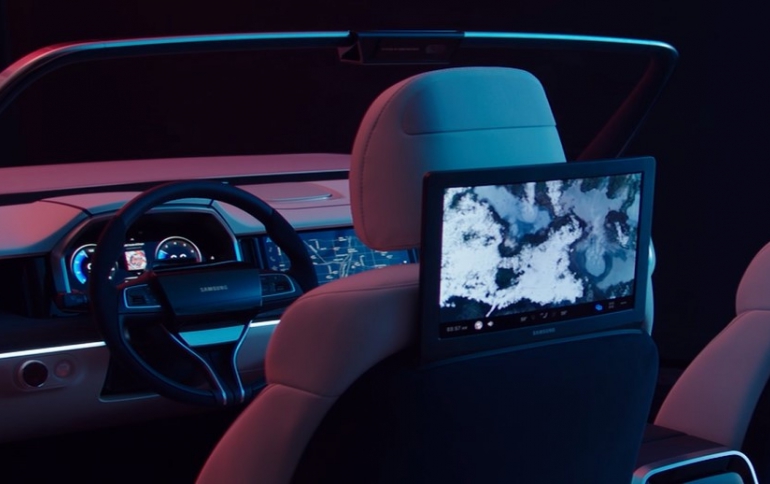
Samsung and Harman Showcase Their Digital Cockpit 2019
Samsung and HARMAN have revealed the next iteration of their Digital Cockpit platform at CES 2019, presenting a connected automotive experience for the near future.
Building on the standard set by last year’s Digital Cockpit, the 2019 version heightens personalization, connectivity and safety while blending with a smart lifestyle. It addresses the needs of drivers and passengers alike and uses simple controls to link devices between vehicle and home.
Arvin Baalu, vice president Harman International, introduced the Digital Cockpit 2019 at Samsung’s CES 2019 Press Conference, explaining how a driver could utilize Bixby, Samsung’s intelligent platform, to check the connected car’s fuel tank before a long road trip, or set the car to the right temperature before leaving for work.
“Using on-board cameras, the new Digital Cockpit recognizes specific drivers and passengers and sets up the car’s personal space accordingly – adjusting the display preferences, seat height, lighting and keying up favorite playlists for each user,” said Baalu.
This year’s Digital Cockpit concept also sports a total of six displays so every passenger can enjoy a personalized experience.

As the development of 5G technologies continues apace, the connected car concept illustrates how an individual car would join a larger communications network – constantly receiving and analyzing information from the world around it — with safety paramount in its design and engineering.
The digital cockpit also supports car-to-home interactions, allowing drivers to check what's inside their fridge or to start up the washing machine -- all from the driver's seat.
For example, the mirror replacement vision system and camera-based safety solutions are designed to alert drivers to nearby moving objects and help prevent them from dozing off while on the road.

The Cellular V2X (vehicle-to-everything) technology combines Samsung’s expertise in mobile network solutions with HARMAN’s automotive technologies to alert nearby vehicles to accidents ahead or detect road work to suggest alternative routes.
The platform is expected to be available in cars around 2021, the South Korean tech behemoth said, adding that it has won contracts from carmakers in China and Europe.
In March 2017, Samsung acquired Harman International Industries to accelerate the development of its automotive and connected technologies.





















